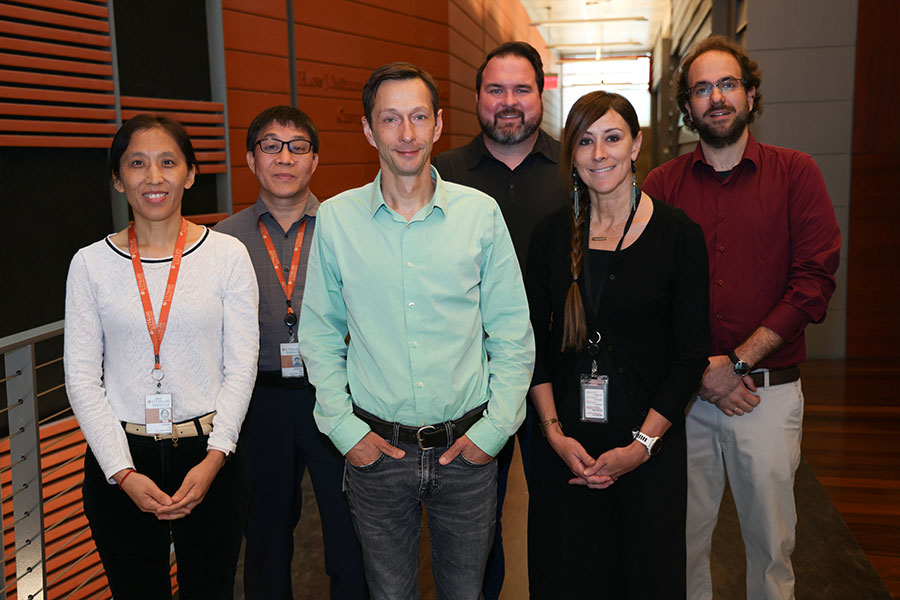Kolonin lab discovers novel function of telomerase in vascular cells

Ramifications of vascular senescence for organ physiology is the subject of the study published in Aging Cell by a research team led by Mikhail Kolonin, PhD, professor and Harry E. Bovay, Jr. Distinguished University Chair in Metabolic Disease Research with the Institute of Molecular Medicine’s Center for Metabolic and Degenerative Diseases.
Health of vascular endothelial cells is fundamental for function of vital organs. Accumulation of senescent cells is a hallmark of aging. However, clear evidence that vascular senescence underlies geriatric pathologies has been lacking.
The team has been studying the function of telomerase reverse transcriptase (TERT) protein, the enzyme that lengthens telomeres to prevent chromosome shortening during cell division. While humans lose TERT expression in most cells early in life, rodents used in laboratory continue to express it through adulthood. Previously, the researchers reported that murine models with TERT genetically inactivated in stem cells have replicative senescence in fat tissue and develop type-2 diabetes prematurely. In the new study, they knocked out TERT in endothelial cells of mice to simulate vascular aging.
“It has remained unclear if vascular cells in some organs wear out faster than in others,” Kolonin said. “We expected telomere depletion to be induced by overfeeding in fat tissue expanding in obesity. However, because endothelial cells are thought to not divide enough for replicative senescence to occur in most other organs, we were not sure if the mutant models would have a phenotype.”
To the surprise of the researchers, endothelial TERT knockouts were found to have not only fat tissue growth and metabolism abnormalities, but also impaired memory and reduced muscle endurance. Moreover, while endothelial cells in adipose tissue had shorter telomeres in mutant animals, the phenotypes in other organs occurred without telomere attrition.
“Our results are explained by non-canonical function of TERT protein,” Kolonin said. “TERT has a poorly understood role in regulating gene expression.”
In addition to cell senescence, gene expression analysis revealed reduced expression of key regulators of oxidative metabolism. Tissue hypoxia, affecting non-vascular cells, was also apparent in organs analyzed.
“Our data indicate that inactivation of TERT leads to compromised mitochondrial function, which results in increased dependence on glycolysis, the anaerobic metabolic pathway,” Kolonin said. “This model of expedited vascular senescence recapitulates the hallmarks aging, which can be useful for developing revitalization therapies.”
Co-authors from McGovern Medical School were Zhanguo Gao, PhD; Rafael Bravo Santos, PhD, postdoctoral research fellow; Joseph Rupert, PhD, postdoctoral research fellow; Rachel Van Drunen, graduate student; Yongmei Yu, research assistant; and Kristin L. Eckel-Mahan, PhD, associate professor.
The research is supported by the Harry E. Bovay, Jr. Foundation, Levy-Longenbaugh Fund, CPRIT, and the NIH.